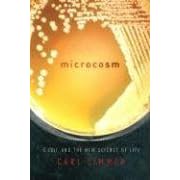 The Oxford Book was a collection of essays and excerpts of essays by various scientists on various aspects of science. The conceit of the book is that it is by scientists only, no science journalists. The book basically covers a lot of things, from explanations of various theories to what is "beauty" in science. It starts focused on empirical facts and very biology heavy, and moves to more abstract parts and gets more and more physics
The Oxford Book was a collection of essays and excerpts of essays by various scientists on various aspects of science. The conceit of the book is that it is by scientists only, no science journalists. The book basically covers a lot of things, from explanations of various theories to what is "beauty" in science. It starts focused on empirical facts and very biology heavy, and moves to more abstract parts and gets more and more physicsbased (most of the philosophizing is by physicists). The book has good parts, but I felt that it was very uneven, both in the level of interestingness of the topics and the quality of the writing. It might be good for someone who is interested, but does not know much science, maybe a teenager if they are good at reading, but I felt that I mostly knew what was being said already, and the parts that I didn't know were not developed enough for me. Overall I think it succeeded at what an anthology of science writing by scientists aimed at the general public should be, but that I am not the target audience.
 Microcosm on the other hand was just the thing for me. I love to learn about biology, despite not being a biologist, and Carl Zimmer is the master of writing for the lay audience (which I am in biology). This book is about E. Coli and how it has been used in science, as the model organism for molecular biology and biotech. One thing it stresses is the similarity between E. Coli and macroscopic life such as ourselves. For example E. Coli has a surprisingly active social life: it forms biofilms which are very complicated structures of E. Coli that live on. There are also wars between strains of E. Coli. There is a section talking about the ethics of biotechnology at the end of the book that I think everyone should read, as it pretty succinctly brings up the points people should be debating, in a debate that is often not about facts (for either side). A very good book, I heartily recomend it. The only problem is that I wish that it was longer.
Microcosm on the other hand was just the thing for me. I love to learn about biology, despite not being a biologist, and Carl Zimmer is the master of writing for the lay audience (which I am in biology). This book is about E. Coli and how it has been used in science, as the model organism for molecular biology and biotech. One thing it stresses is the similarity between E. Coli and macroscopic life such as ourselves. For example E. Coli has a surprisingly active social life: it forms biofilms which are very complicated structures of E. Coli that live on. There are also wars between strains of E. Coli. There is a section talking about the ethics of biotechnology at the end of the book that I think everyone should read, as it pretty succinctly brings up the points people should be debating, in a debate that is often not about facts (for either side). A very good book, I heartily recomend it. The only problem is that I wish that it was longer.



No comments:
Post a Comment